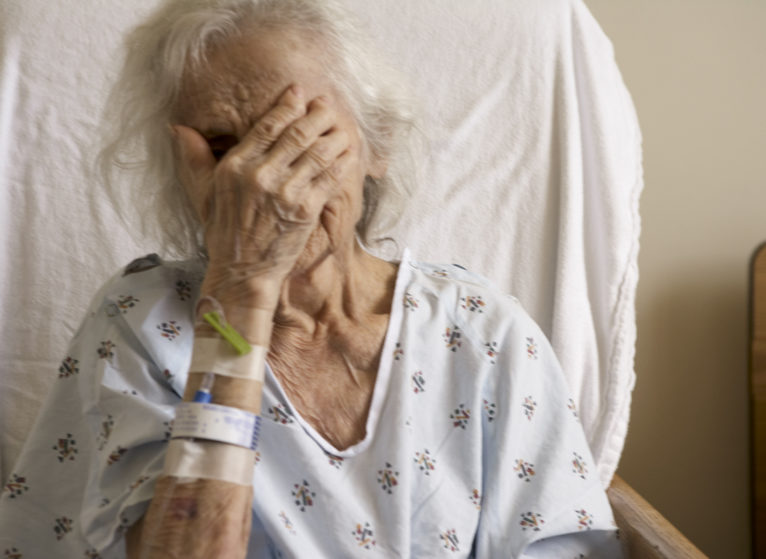Caring for an aging parent or loved one at home can be challenging. But a hospitalization can make things even more stressful and, at times, unpredictable.
The fact is, hospitalization comes with some added risks for those who are older, or who may already be experiencing cognitive decline. In addition to the medical issue that got them admitted to the hospital, your loved one must adjust to unfamiliar surroundings, routines and people.
According to geriatric medicine specialist Laurie Archbald-Pannone, MD, these challenges and others can trigger hospital delirium (see the 3 kinds of delirium below). “Besides being sick and being in a different place, other things can happen during hospitalization that can lead to an acute change in cognition in these patients,” she says.
Why Is My Loved One So Confused?
The most common factors that contribute to hospital delirium include:
- Changes in medication
- Active infection
- Lack of sleep
- Dehydration
- Constipation
- Extended inactivity
Steps to Prevent Hospital Delirium
Fortunately, hospital care teams take active steps to lower the risk of delirium. “Hospital staff have a really deep understanding of the risks of hospitalization for older patients. They put many measures in place to decrease the risk of delirium in this high-risk population,” says Archbald-Pannone.
Let them rest at night
“If someone doesn’t need to have their vitals checked every 4 hours, then we can let them rest rather than waking them up during the night unnecessarily.”
Get them moving during the day
“Many patients don’t need to be strictly bed-bound. We try to safely get people moving as soon as possible.”
Closely monitor what goes in their body
“We review medications, and address nutrition and hydration — these are all part of our plan to decrease factors that put people at risk for delirium.”
What Are the Signs of Hospital Delirium?
There are 3 types of hospital delirium. Each has different symptoms:
- Hyperactive: Patients experience an acute change in cognition accompanied by sleeplessness, agitation, and potentially aggressive behavior.
- Hypoactive: In addition to being less perceptive and aware, patients struggle to stay awake, and have difficulty focusing.
- Mixed: Some patients may have both types of delirium, with symptoms that come and go throughout the day or from one day to the next.
Can Delirium Trigger Dementia?
Your loved one with delirium may be newly confused and disoriented. They may have hallucinations — seeing or hearing things that aren’t there. Or they may not know where they are or what day it is. Seeing a loved one this way can be frightening. But delirium is an acute change, meaning most all patients get better, says Archbald-Pannone.
“Typically, delirium improves once the patient is treated and their condition is under control — whether they receive antibiotics for an infection or get fluids for hydration,” she says. “It may take days or even weeks to get them back to being themselves, but most people get better.”
The exception can be for people with an underlying cognitive impairment, such as dementia. “Sometimes, delirium may be a tipping point for a change in cognition for these patients,” says Archbald-Pannone. “They may improve, but not always get back to where they were before hospitalization.”
Lingering Signs of Delirium?
Find out if symptoms are temporary or if they signal a more serious problem.
How Can I Help
There are some things in your control that you can do to help an elderly loved one who may be at risk for hospital delirium:
- Know the risk factors. Help ensure your loved one is eating, staying well hydrated, and is not getting constipated.
- Share what you see. Delirium symptoms come and go throughout the day. So if you notice a difference or change in your loved one, speak up and let the care team know about your concern. You can be an important part of the care team.
- Stay calm and avoid agitation. Gently correct your loved one if they misunderstand or forget, or see something that isn’t there. But there’s no need to argue. Be supportive and try to reorient them and put them at ease.
- Stay involved. Your loved one may leave the hospital, but that doesn’t necessarily mean they’re fully recovered. Be sure they have the care they need at home. Make a follow-up appointment with their primary care physician to closely follow their care after hospitalization. Their doctor can review any new medications and follow their progress after discharge.


